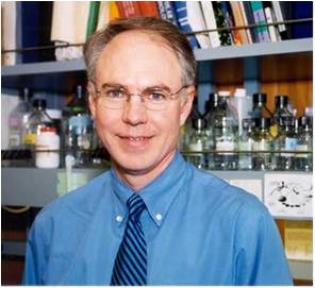Charles L. Sawyers, M.D.

Co-Founder & Advisory Board Member
Dr. Sawyers is the Marie-Josee and Henry R. Kravis Chair and Director of Human Oncology and Pathogenesis at the Memorial Sloan-Kettering Cancer Center in New York. He is also an Investigator in the Howard Hughes Medical Institute. Dr. Sawyers is well-known in leukemia circles for his work on the BCR-ABL tyrosine kinase in chronic myelogenous leukemia. He was a primary participant in the design and conduct of clinical trials of the ABL tyrosine kinase inhibitor STI571 (Gleevec), and his lab was the first to identify mechanisms of drug resistance due to Bcr-Abl gene mutation and amplification. He has also applied his expertise in signal transduction to human prostate cancer. His group has developed a novel set of human prostate cancer xenografts which have allowed molecular biological investigations into the mechanisms of hormone-refractory prostate cancer progression and metastasis. Most recently, his laboratory has implicated deregulation of the PTEN/AKT pathway as a major event in advanced prostate cancer.
Dr. Sawyers received his undergraduate degree from Princeton University and his medical degree from the Johns Hopkins School of Medicine. He completed a residency in Internal Medicine at the UCSF Medical Center, and a clinical fellowship in Hematology/Oncology at the UCLA School of Medicine. He also completed a post-doctoral fellowship in Molecular Biology at the UCLA School of Medicine. Dr. Sawyers is board certified in internal medicine, medical oncology, and hematology. He has published over 70 scientific and medical papers in such journals as the New England Journal of Medicine, Science and Cell. Dr. Sawyers has won numerous honors and awards, including the Franklin D. Murphy Prize, Stohlman Scholar of the Leukemia and Lymphoma Society, Doris Duke Distinguished Clinical Scientist Award, and was the Peter Bing Professor at the UCLA School of Medicine. Beginning fall of 2002, Dr. Sawyers became an Investigator of the Howard Hughes Medical Institute. In 2009, Dr. Sawyers received the Lasker Award, one of the most prestigious honors in science, for his work elucidating the underlying causes of drug-resistant chronic myelogenous leukemia (CML). These findings led to the development of novel treatments for the disease.



